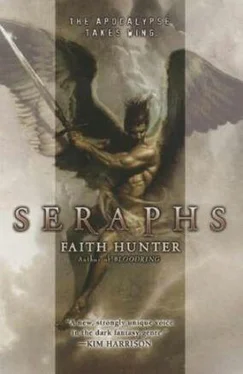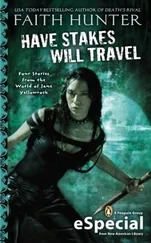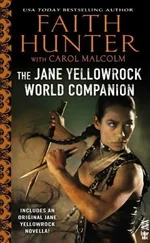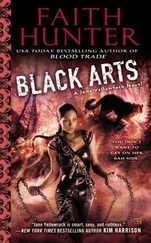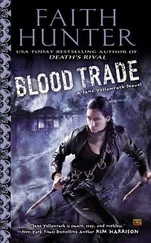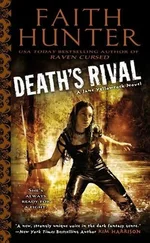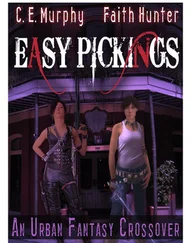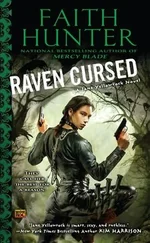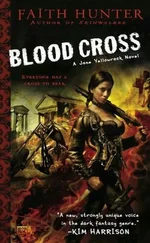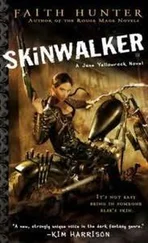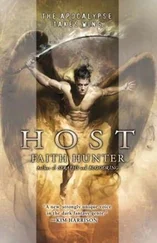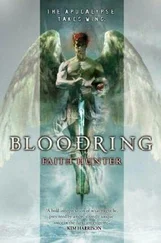“Out of my mind,” I said, seeing hate in the eyes of the farrier who shod my horse.
“Me too. But God the Victorious will protect us.”
Having never learned what reply was appropriate when confronted with a faith I was genetically unable to share, I remained silent as we moved through the throng of black-clad, self-appointed judges and left them behind. At the end of the line stood Jacey and her brood, Eli and his mother, and a dozen or so others, including Ken Schmidt. They fell into the void behind us, a human shield. I wondered if they thought of themselves in that way. When we reached the curve in Upper Street and left the old church behind, I leaned to Polly. “Is your thumb really cut?”
“I will confess the sin of lying at kirk this evening,” she said serenely.
“Thank you, Polly.” I didn’t know why she had helped me. We weren’t friends in any sense of the word, barely nodding acquaintances, but I wasn’t questioning her help.
Once at the shop, we entered while Rupert and Audric stood outside beneath lowering clouds, guarding for possible attack. I gave her a charm, one that might calm a restive baby. For her help, I’d have given her a charm for wealth and long life if there were such a thing. Waving away my thanks, she kissed my cheek, took her baby from the elder, and moved outside, down the street, leaving me alone.
From the back of the shop, a man emerged. I appraised him in the instant I pulled my sword and plucked a throwing blade. Hands up, palms out in the universal gesture of peace, he hesitated. Both cheeks wore brands, the left cross old and pale, the right still healing, perhaps only a few weeks old. He was dressed for the cold in layered, shabby coats and mismatched boots. Alone in the shop, I drew back the throwing blade.
“I’m unarmed,” he said quickly.
“Give me one reason why I shouldn’t gut you for breaking and entering.”
“I’m with the EIH,” he said. “And we want you to join with us against the seraphs.”
I had no idea at all what to say to that one, but I didn’t release the throwing blade, flipping and tucking it away instead. Silent, my sword in a low defensive position, I studied him, watching his hands. He could have been anywhere between thirty and forty, his face weathered brown, creased deeply at the eyes and around his mouth. His Cherokee heritage showed plainly in the beak of his nose and black eyes, even without the braids lying on either shoulder, framing his long face. “You have one minute,” I said.
“Do you want to know the real reason why seraphs put your people in Enclaves? It wasn’t that silly fairy tale you recounted back there.” That ticked me off, but I raised my brows in a parody of polite manners. He lowered his palms a fraction and said, “It was because neomages can’t breed fertile offspring on humans, but you can with seraphs.”
“Forty seconds.” Everyone knew that human and seraph offspring, the second-unforeseen—half-breeds, mules —were indeed sterile, often with incompletely developed genitals, while the offspring of mages and seraphs, the kylen, were capable of reproduction, able to breed with humans or mages equally. He was saying nothing new.
His eyes shifted to the door as it opened, letting in a gust of air. Speaking fast, he said, “It’s because you’re genetically closer to seraphs than to humans.”
Audric and Rupert stepped into the shop. I could almost feel them maneuvering to my left and right, out of the way of my blades. “What’s this scum doing here?” Rupert asked.
“Chatting. Leaving,” the man said, hands still out, placating. “Name’s Joseph Barefoot. You want to talk, leave a white rag hanging at your back window. I’ll be notified. Think about what I said.” He eased away, backed down the small hallway, and disappeared from view. I heard him exit the shop by the back door.
Not looking at my friends, I sheathed my sword. Battle rage drained out in a rush. My legs and arms were heavy, tired, and I hadn’t even drawn blood. I rested a hand on a display, head hanging down. “What now?” I asked.
“Now we lock up the shop and mount a watch in case one of the more fervent zealots decides to break windows, toss firebombs, or paint slogans on the walls. Jacey’s sending Zeddy over to spend the night here, and her next two largest will keep watch in the barn.”
Humans. Putting themselves and their families at risk. For me. I wanted to be sick. “Fine.” I managed a smile at the picture they made, tall and muscular, swords at their hips. Audric’s cloak was the basic black leather worn by the second-unforeseen when they went to war, though no one at my trial had commented on it. Unless the reporter had noted the dobok and delved into his past, his secrets were still safe. Rupert’s new blue velvet had a trendy swath of lace at the throat. “You made great champards,” I said. “Very flashy. But—”
“If you think you’re taking off to keep us safe, don’t bother,” Rupert said, untying the cape and brandishing his new sword in its scabbard. “All for one and one for all, dearie.”
I had been about to say just that. Unexpected tears sprang into my eyes and I hiccupped, half sob, half laughter.
“Go lie down,” Audric said. “You’re dead on your feet. Oh—and the tense was incorrect.” When I looked my question at him he said, “We make great champards.”
A tear rolled down; I caught it on my wrist. As I turned back, I saw Eli Walker across the street. He was leaning against the wall outside Shamus Waldroup’s bakery, one knee bent, foot flat against the building, rifle cradled in his arms. He tipped his hat when he caught my eye. Eli worked as a tracker, sometimes for the kirk, sometimes for the Administration of the ArchSeraph. Neither liked me much. I wondered who he was working for today.
Thadd walked by Eli, talking to Jacey, the cop animated, his body language angry, Jacey calm, her red clothes a beacon in the gray light. Eli’s gaze followed them, speculative. I remembered that neither Thaddeus Bartholomew nor the assey Durbarge had been in the meeting house. I’d have smelled Thadd. Durbarge, as an Administration of the ArchSeraph Investigator, would have been forced to stand beside me on the dais, his eye patch drawing frightened looks. I was a legally licensed mage, accused in a court of law. Part of an assey’s job description was protecting mages in the human population, and he hadn’t been there. Because he had been kept away as part of the ploy by Culpepper’s brigade and the orthodox? Or because he was colluding with them?
Farther down the street, the reporter who had been at the trial was doing interviews, currently talking to a member of the orthodox, an elderly man with a full beard and a deer-hide hat that came down over his ears. She was getting an earful, and I imagined most of it was mage hate. The reporter had perfect tanned skin, chin-length blond hair that curled at the tips, and clothes that came out of designer shops in Atlanta. As if she felt me watching her, she looked up and met my eyes. Immediately, she ditched the man and raced toward the shop.
Not wanting to listen to her pitch, I turned and climbed the steps, my booted feet heavy and cold. Behind me, I heard the bells over the door jingle and Rupert intercept her. Romona’s tone wasn’t happy, and I caught the words, “the Trine,” and “ice cap,” and “Darkness.” It wasn’t good, if the press had put that much together, but I still didn’t go back down.
At the top of the stairs I stopped. The EIH provocateur had entered the shop, and was watching my home and me. It’s because you’re genetically closer to seraphs than to humans. It was an obvious deduction, yet one I had never made. So far as I knew, no one had made it. And I had no idea what it might mean. Speculating, I went in.
Читать дальше
